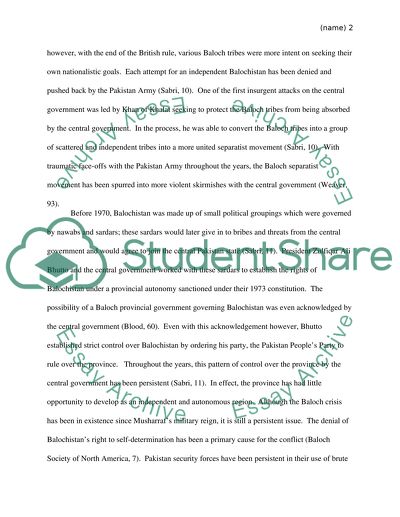Cite this document
(“Baluchistan: In the Absense of Human Rights Research Paper”, n.d.)
Retrieved from https://studentshare.org/history/1394674-baluchistan-in-the-absense-of-human-rights
Retrieved from https://studentshare.org/history/1394674-baluchistan-in-the-absense-of-human-rights
(Baluchistan: In the Absense of Human Rights Research Paper)
https://studentshare.org/history/1394674-baluchistan-in-the-absense-of-human-rights.
https://studentshare.org/history/1394674-baluchistan-in-the-absense-of-human-rights.
“Baluchistan: In the Absense of Human Rights Research Paper”, n.d. https://studentshare.org/history/1394674-baluchistan-in-the-absense-of-human-rights.


